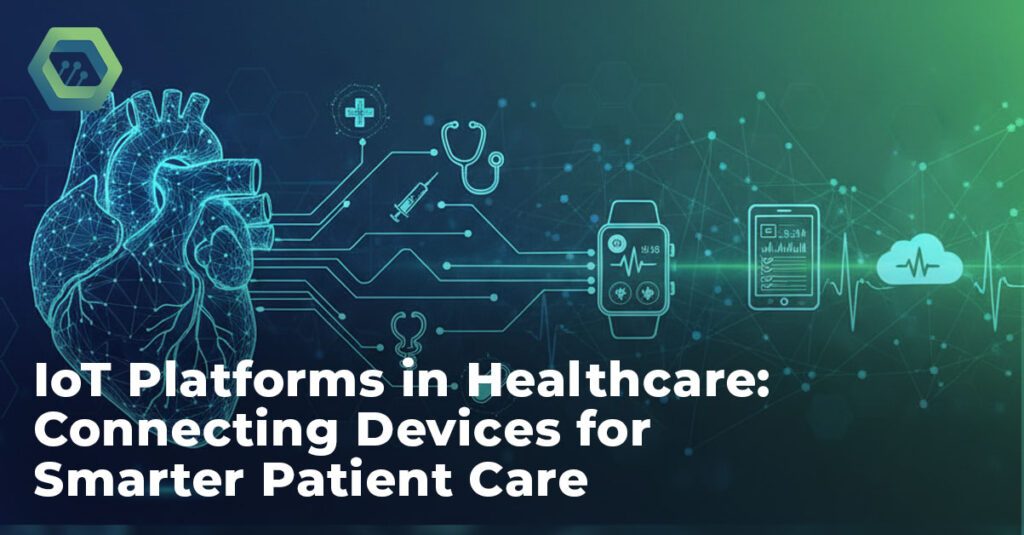The healthcare industry is changing faster than ever. From smart watches that track heart rate to hospital systems that monitor critical patients in real time, technology is transforming the way doctors, nurses, and patients interact. At the center of this change is the IoT Health Care Solution — platforms that connect medical devices, analyze data, and make patient care smarter, safer, and more efficient.
In this article, we will explore how IoT platforms work in healthcare, why they matter, the benefits they bring, and what the future looks like.
What Is an IoT Health Care Solution?
An IoT Health Care Solution is a platform that connects medical devices such as wearables, sensors, diagnostic machines, and hospital equipment into one system. These platforms collect patient data in real time, process it, and share insights with healthcare professionals.
Think of it like this: instead of doctors waiting for a patient’s next visit, they can see live updates of their health, anytime. If something unusual happens — like a sudden drop in oxygen level — the platform can send an alert immediately.
Real-World Example
Imagine a diabetic patient wearing a smart glucose monitor. The device measures sugar levels continuously and sends the data to the hospital’s IoT platform. If sugar levels go dangerously high or low, the system alerts both the patient and their doctor. This is a simple but powerful example of an IoT Health Care Solution in action.
Why IoT Platforms Are Important in Healthcare
Healthcare is not just about treatment; it’s about prevention and early action. IoT platforms play a big role in:
- Continuous Monitoring – Patients don’t need to stay in hospitals. Devices send health data from their homes.
- Better Diagnosis – Doctors get real-time data instead of relying only on tests during visits.
- Faster Emergency Response – IoT systems trigger alarms for critical conditions like heart attacks or asthma attacks.
- Data-Driven Care – Hospitals can study trends and predict issues before they become serious.
By connecting devices and people, an IoT Health Care Solution saves time, reduces errors, and improves overall patient safety.
Benefits of IoT Health Care Solutions
1. Improved Patient Care
Patients receive care based on real-time information, not just periodic checkups.
2. Remote Health Management
Doctors can treat patients living in rural areas without them traveling long distances.
3. Operational Efficiency
Hospitals use IoT platforms to track medical equipment, reduce waiting times, and manage resources better.
4. Reduced Costs
Fewer unnecessary hospital visits and quicker treatments reduce medical costs.
5. Personalized Medicine
Data collected from wearables helps design treatment plans based on a patient’s unique needs.
Key Features of an IoT Health Care Solution
An effective IoT platform in healthcare should offer:
- Device Connectivity – Easy integration with wearables, hospital equipment, and mobile apps.
- Scalability – Ability to handle millions of patient data points as healthcare grows.
- Security & Compliance – Data protection following healthcare regulations like HIPAA.
- Data Analytics – Turning raw patient data into actionable insights.
- Alerts & Automation – Sending emergency notifications automatically to doctors and family.
Challenges in Implementing IoT Health Care Solutions
While IoT brings many advantages, there are challenges too:
- Data Security Risks – Sensitive patient data must be protected.
- Device Compatibility – Different devices and brands need to work on the same platform.
- High Initial Investment – Setting up a full IoT platform can be costly.
- Training & Adoption – Doctors and staff need proper training to use new technology.
Overcoming these challenges requires strong IoT platforms designed with healthcare in mind.
Future of IoT in Healthcare
The future of IoT Health Care Solutions is very promising. By 2030, experts predict billions of connected medical devices worldwide. Some exciting trends include:
- AI-powered IoT – Smart predictions like identifying risk of stroke before it happens.
- 5G Connectivity – Faster data transfer for instant communication between devices.
- Robotic Surgery Assistance – Robots guided by IoT systems for safer surgeries.
- Smart Hospitals – Fully connected systems where everything from beds to medicine stocks is tracked.
This future means healthcare will not just treat patients but actively work to keep them healthier.
Why Hospitals and Clinics Should Adopt IoT Platforms
Healthcare providers that use IoT Health Care Solutions can:
- Reduce patient readmission rates
- Improve doctor-patient relationships
- Gain trust by offering advanced, transparent care
- Stay ahead of competition with modern healthcare practices
For patients, this means less stress, better treatment, and more confidence in their healthcare journey.
Final Thoughts
IoT is reshaping healthcare by connecting devices, doctors, and patients in real time. An IoT Health Care Solution improves patient safety, lowers costs, and enables smarter, personalized care. From wearable devices to smart hospital systems, these platforms are the backbone of future healthcare.
If your hospital, clinic, or healthcare business is planning to adopt IoT, choosing the right partner is critical. Platforms must be scalable, secure, and designed for medical needs.That’s where OmniWOT comes in. OmniWOT provides powerful IoT solutions that are flexible, secure, and tailored for healthcare. With its reliable IoT platform, OmniWOT helps healthcare providers deliver smarter patient care — today and for the future.


